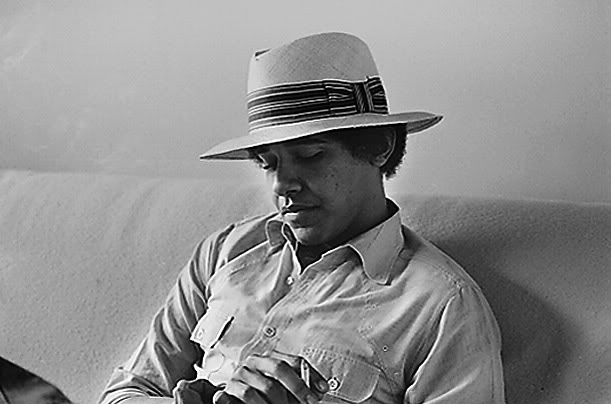
Book: Dreams From My Father, A Story of Race and Inheritance by Barak Obama
Read: 8/13/2009
Rating: 5.5/10
What a slow and often times painful read!! There were so many points throughout the book that I found myself thinking blah blah blah. The main reason I think I found this book so disappointing is because there was a big gap between my expectation and understanding of Obama now in comparison to the time when he wrote this book. He was still quite young, had just finished his stint as a community organizer in Chicago and the book ends with his journey to Kenya where he tries to reconcile the race he has inherited but never really felt he could claim. His writing is not bad but he weighs down on details and exposes us to some of his inner struggles that at times are not the easiest to sympathize with.
Obama’s mother and father met while they were students in Hawaii. His mother is white and his father black. His parents split up when he was very young with his father eventually returning to Kenya, leaving Obama to be raised by his white mother and grandparents. Obama greatly struggles with his racial identity in this context. In a time where racism was legally validated he had to reconcile what it meant to be a black man who was often degraded by white people with the fact that his own family at home was white.
Before reading this book I always took offense to people saying that Obama was ‘black.’ For all intents and purposes he is half-black and half-white. I have often heard my mixed friends complain that they hate when they are identified as one race or another, feeling as if they are expected to deny their mother or father’s background just because of how they look.
Reading about his experience allowed me to understand why Obama can legitimately “claim” his “blackness.” Despite the fact that he was raised with status and privilege not afforded to most black men in his era, he still faced the challenges, hurdles and racial stereotypes that come with being a black man. For those purposes it didn’t matter at all whether he was half, a quarter or five percent black. As long as society saw him as black, he carried the black man’s burden in at least some ways.
He writes, “To be black was to be the beneficiary of a great inheritance, a special destiny, glorious burdens that only we were strong enough to bear. Burdens we were to carry with style.” But later he also adds, “My identity might begin with the fact of my race, but it didn’t, couldn’t, end there.”
In one of my favorite passages in the books he starts to come to terms with his father, who has been absent and has grown into a mythical creature in his mind. “He had never been present to foil the image, because I hadn’t seen what perhaps most men see at some point in their lives; their father’s body shrinking, their father’s best hopes dashed, their father’s face lined with grief and regret.” As he comes to learn of his father’s faults he recognizes that “all my life I had been wrestling with nothing more than a ghost!”
In his trip to his father’s homeland Obama begins to reconcile his identity and fill the missing pieces of his life. He concludes by realizing, “I saw my life in America- the black life, the white life, the sense of abandonment I’d felt as a boy, the frustration and hope I’d witnessed in Chicago- all of it was connected with this small plot of earth an ocean away, connected by more than the accident of a name or the color of my skin. The pain I felt was my father’s pain. My questions were my brother’s questions. Their struggle, my birthright.”
No comments:
Post a Comment